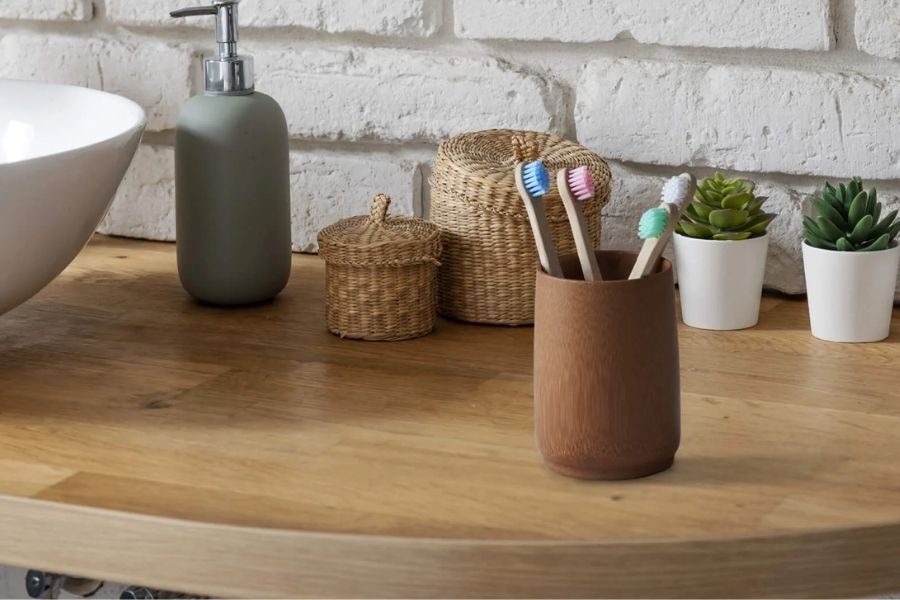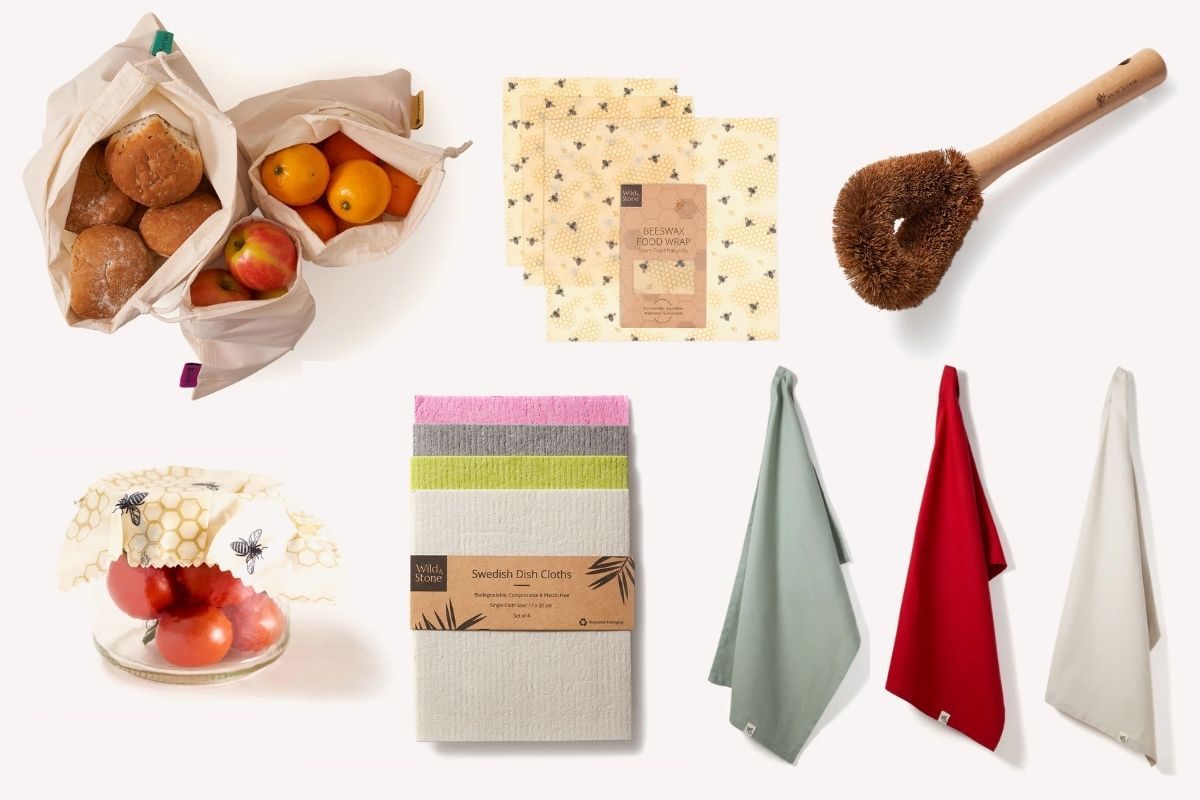Your Cart is Empty
INFO

25 Ways To Save Water At Home
July 21, 2022 6 min read
Here in the UK, we are well known for being a wet place.
We are surrounded by sea, rivers thread through nearly every city and we seem to get a lot of rain!
So why would we need to save water? Surely this is not a problem for us, won’t the reservoirs just fill up again?
Why We Need To Save Water
Surprisingly, it doesn’t rain as much in the UK as you may think. SES water, the water company that supplies the southeast of England tells us that “London receives less rainfall than cities such as Rome, Miami, Sydney and Barcelona. If you divide the rainfall per person, we have less than Morocco and Turkey. South-east England receives 50% less rainfall than the rest of the UK.”
Pretty shocking, isn’t it?
Unfortunately, the world water supply is equally startling.
Although approximately 71% of the Earth is covered in water - oceans, lakes etc - this water is a finite source. It is never added to. We never gain or lose water. It just goes through the water cycle.
As the cycle continues, there is only a certain amount of water available at any point in time, and it’s limited.
Add to this, less than 1% of the Earth’s water is freshwater that is actually usable for us. The rest is salt water in the sea, stored in the frozen ice caps or just floating around our atmosphere.
From this low percentage of fresh water available for human use, a massive 70% goes toward growing food and raising animals. So you can see there is only a limited amount of freshwater available for other purposes.
Sea water can’t be used directly to provide drinking water as its salt content is too high. Any process to remove salt from seawater is hugely expensive, uses a lot of energy and has a large environmental impact.
It comes down to being mindful of the water you use and making your water-use efficient.
We’d like to share our favourite water-saving tips here, so you can start being more water-efficient at home.

Water Saving Tips For The Kitchen
- Got a dishwasher? It’s not a massive no-no! If you fill it up completely each time you run it - perhaps using it every other day for instance - and you'll use less water than you would by doing the dishes by hand. Yes, even if you're using a washing-up bowl.
- If you have space, try putting a large bottle of tap water in the fridge to save waiting for the tap to run cold. Running the tap, and waiting for the tap to run cold can waste 10 litres of water a day!
- Remember to only fill the kettle with the amount you are actually going to use.
- Put lids on saucepans when you cook to stop water evaporating away, or even better, steam your food to cut water usage and retain more of the natural nutrients. We like to steam broccoli above the boiling carrots! If you do boil, you could use the leftover water as a tasty stock for soups, or let it cool and use it to water plants.
- Wait till you have a full load before using your washing machine and then utilise your eco settings. You can save 10 litres of precious water by running one full load of washing instead of two half loads.
- Wash your fruit and veggies in a washing-up bowl instead of under the tap. A running tap uses up to15 litres of water every minute.
- Check your pipes and taps for leaks. A leaky tap wastes water 24 hours a day.
- A surprising way to save water is to reduce your food waste. It takes a lot of water to produce our cereal, fruit and other food. More than half of the 7 million tonnes of food and drink UK households bin every year could be eaten. Wasting less food could save you money too. Read our blog on how to cut food waste here.

Save Litres Of Water In The Bathroom
- Did you know a power shower can use more water than a bath? A bath usually uses around 80 litres of water. Power showers can use 15 litres of water per minute. This means a 10-minute shower can use 150 litres of water. Baths and showers are accountable for the highest usage of water consumption in the home, at around 34%. Take shorter showers and also…
- Change your showerhead. Try an aerated showerhead - which reduces the flow but doesn't compromise on pressure. They maintain the pressure by mixing in air with water to produce a steady, even spray. Or try a low-flow shower head - they reduce the amount of water used to around 6 litres per minute, whilst still giving you the feel of a normal shower. Simply changing your showerhead saves water and energy.
- Turn off the tap when you are brushing your teeth. Remember, a running tap wastes 6 to 15 litres per minute. The same goes for shaving too - just have some warm water in the bottom of the sink.
- Fix that dripping tap. It could be wasting around 5,500 litres of water a year and usually just needs the washer replaced.
- Get a cistern displacement device to save up to 5,000 litres of water every year. They are free from most water companies. A CDD is placed in the toilet cistern to displace around 1 litre of water every time you flush and is very easy to install.
- Did you know that around 30% of the total water used in a home is used to flush the toilet? And it’s water the same high-quality water that comes out of our taps? Updating your toilet to a Dual Flush type can save a lot of water. Dual Flush toilets use 4-6 litres of water as opposed to the old style flush systems which use a massive13 litres per flush.
- Don’t flush away cotton wool balls, make-up wipes or any other wet wipe. Simply throwing them in a bin will cut down on the amount of water wasted with every flush and protect our sewers too. These items should not be going down the toilet.

Saving Water In The Garden
- Stop using sprinklers in the garden. Did you know that sprinklers can use as much as 1,000 litres of water an hour! Learn to be ok with the lawn going brown. It will recover the next time it rains.
- Use a water butt to catch large amounts of rainwater and use this to water your plants, clean your car and wash your windows.
- Use the water collected in your water butt to fill your watering can. Using a watering can significantly reduces the amount of water used whilst getting the perfect amount to your plants.
- Cover your garden beds with mulch and bark in your garden, it will help to reduce evaporation by up to 75%.
- Check the weather before you water. Most plants can go at least a day without being watered. If you know rain is forecast for tomorrow then it’s fine not to water today.
- Choose to plant some drought-resistant plants that don’t require as much watering, they will add a bit of diversity and resilience to your garden in the summer.
- Don’t plant artificial turf believing it will save water because you won’t have to water. It takes around 3,744 litres of water to manufacture one square metre of artificial grass which has been estimated to be the equivalent of watering a real lawn for 18 years. Plastic turf will also need to be kept clean with water, wasting even more.
- Time when you water your garden. Choose to water in the early morning and late afternoon as this will stop water from evaporating in the light and heat.
- Water the soil so that the liquid goes straight to the roots, where it’s needed. You’ll use less water and it’s better for your plants.
- Use a broom and water from your bath or water butt to clean your path and drive. Hoses typically use about 1000 litres of water an hour - more than the equivalent of 12 baths.
-
Wild & Stone's mission is to create stylish, easy to adopt and usable alternatives to common plastic products around the home. We source all our products sustainably, from raw material to final delivery. Shop our wide range today.
Also in Sustainable Living Blog

The 5 Benefits of Using a Bamboo Toothbrush
August 07, 2025 4 min read
Discover five benefits of using a bamboo toothbrush, from saving the planet and oral health to the fastest plant in the world.

The 5 Best Eco-Friendly Kitchen Products
July 30, 2025 4 min read
Discover the 5 best eco-friendly kitchen products to take care of yourself, your home & the environment.
Make your inbox a little more eco!
Sign up and save 10% on your first order of 2 items or more.
Keep an eye on your inbox for the latest eco trends, articles, deals and product releases.



